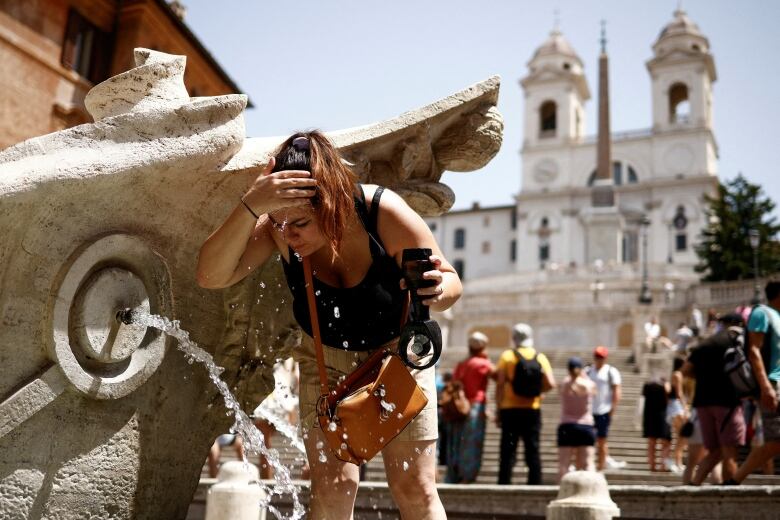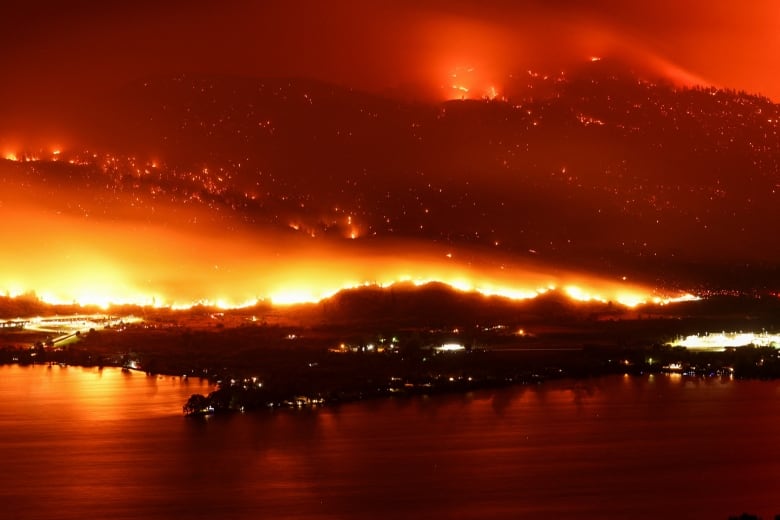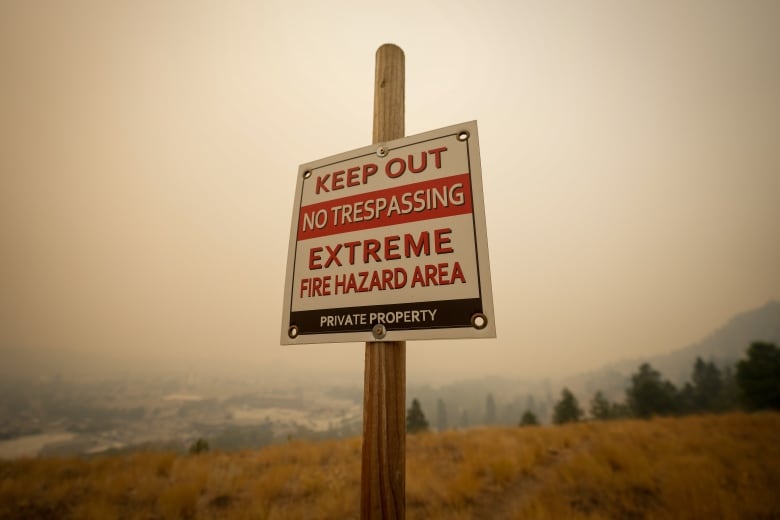This has been the worst wildfire season on record. What could 2024 have in store?
'If next year is going to be a warmer year, I would expect that the dice will be loaded,' says fire expert

What a summer that was the hottest ever recorded globallyand the worst for wildfires in Canadian history.
Dry conditions and warmer-than-usual temperatures helped fuel a long andunrelenting wildfire season that, to date, has burnedmore than 17,500,000 hectares, a 647 per cent increase over the 10-year average. Tens of thousands of residents were forced to flee, and six firefighters lost their lives battlingthe seemingly endless flames.
And the firesare still burning.
The question is, are there lessons to be learned?Can the devastating wildfires of 2023 help prepare us for 2024?
Heating up
The whole year is on track to be one of the hottest on record. According to the National Oceanic and Atmospheric Administration (NOAA), there is a 93.42 per cent chance it will take the top spotand a 99.5 per cent chance it will at least be in the top five.
To put itin perspective, all of the hottest years in NOAA's 143-year record haveoccurred since 2010, with the last nine years being the nine warmest on record.
Added to that, we're also in the midst of an El Nio a cyclical warming in the Pacific Ocean that, coupled with the atmosphere, can cause a rise in the global temperature and that means next summer could see more of the same.
"We already broke various global temperature records in the summer," said Greg Flato, a senior research scientist with Environment and Climate Change Canada (ECCC)."So my expectation is that we will break even more of those records next year."
What's more concerning however, is the increasing wildfire risk, particularly in British Columbia.
According to a recent study published in Nature Communications, four of the worst wildfire seasons in B.C. in the last 100 years have all occurred in the past seven years: 2017, 2018, 2021and 2023.
Added to that,Canada's Changing Climate Report, released in 2019. found thatas the planet continues to warmCanada will experience more extremes, including drought and wildfire risks.

There is some comfort knowing that, even if 2023stands as the hottest year on record globally, that doesn't mean next year will be another brutal wildfire season across Canada. You only have to look to 2021 to see how the west went from drought and fires to flooding.
"Seasonal forecasting is difficult. And forecasting for next year is difficult. But if next year is going to be a warmer year, I would expect that the dice will be loaded. Odds are, it'll be an above-average year [for fires]," said Mike Flannigan, a professor and the director of the Western Partnership for Wildland Fire Science at the University of Alberta, and co-author of the Nature Communications paper.

But he's not expecting another "exceptional" year like 2023.
Another concern, apart from too much heat, is too little moisture. Even though B.C. could see an increase of five to eight per cent in precipitationby the end of the century, it may not be enough to help with the wildfires.
"Because [heat's]so good sucking the moisture out of the fuel you need even more precipitation to compensate for the drying effect, and generally for every degree of warming you need a 15 per centincrease in precipitation," he said.
And that just isn't happening.
Looking ahead
With all this information at hand,Flannigan says, looking forward, a national firefighting agency would help tackle the rise in wildfire risk.
"One option is to expand and enhance the role of Parks Canada, because they fight fires already," he said. "Just enhance them to help out during those extreme situations, ideally, before the stuff hits the fan."
Flannigan says provinces calling on other provinces for help can be complicated. For example, B.C. may callon Quebec, which might be experiencing a relatively quiet fire season then.But what happens if it sees an outbreak? That crew it sent out will be gone for about 20 days, and then need rest time. Who's available to fight Quebec's fires?
"So you're always playing this game:'I want to help, but I have to protect my home province, my home territory,'" he said.
He says Canada gets about 6,000 firesannually, with half being started by humans. Looking ahead, there could be an argument to close down national or provincial parks when the threat of wildfires is high, as AlbertaandNova Scotia did this May.
Even Kamloops closed its walking parks several times this year. This kind of action at the municipal level is something else that could better prepare us, he said.
There are also things individual peoplecan do.
"I think the main thing is that we have to be prepared," said Flato, at ECCC;People should planwhat to do if they have to evacuate.
They can also reduce the risk of wildfire byensuring that vegetation doesn't touch nearby power lines, by keeping grass cut short, and cleaning roofsregularly, as recommended byB.C.'s FireSmartprogram.
As for what the future holds, Flannigan says models that predict rising temperatures "have been really quite good."
The same cannot be said of predicting the impact of wildfires, however. Those, he said, have been "grossly underestimated."
"If you think it's crazy now, it's only going to get get crazier in the future and [with] more extremes at both ends," he warned.















_(720p).jpg)


 OFFICIAL HD MUSIC VIDEO.jpg)
.jpg)



























































































